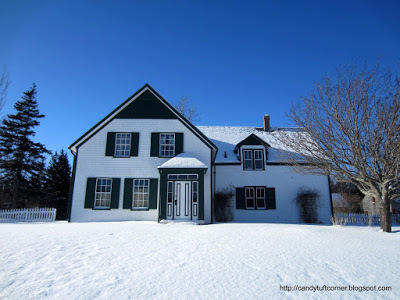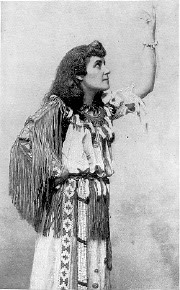Stephen Roney's Blog, page 268
December 24, 2019
UN Declaration on Indigenous Rights
'Od's Blog: Catholic and Clear Grit comments on the passing parade.
Published on December 24, 2019 14:27
Michael Caine Educates Us
A guy I met with yesterday had met Michael Caine.
He was hired as an extra on Educating Rita. One day at the canteen, he saw Caine just behind him, waiting in line for food like everyone else. He offered to let Caine go ahead of him, and Caine refused.
“Good God, no. You’re just as hungry as I am.”
And so, he reported, in wonder, Michael Caine, despite being such a big star, had no ego.
You here these stories often, about big stars. They say Rod Steiger, or Peter Sellers, or Laurence Olivier, seemed to have no ego at all. Marilyn Monroe was famously unsure of her attractiveness.
And this is actually not surprising. It all stand to reason.
If you had a large ego, how could you be a good actor?
The whole trick of acting is to inhabit someone else’s ego. To put yourself aside, and be them instead of you for a while, to act and think and say as they would.
You need a vanishingly small ego for that.
Perhaps you need that for any art. Keats called it “negative capability.”
As to the poetical Character itself ... it is not itself—it has no self—it is every thing and nothing—It has no character—it enjoys light and shade; it lives in gusto, be it foul or fair, high or low, rich or poor, mean or elevated.... A Poet is the most unpoetical of any thing in existence; because he has no Identity—he is continually in for—and filling some other Body—The Sun, the Moon, the Sea and Men and Women who are creatures of impulse are poetical and have about them an unchangeable attribute—the poet has none; no identity—he is certainly the most unpoetical of all God’s Creatures. …
When I am in a room with People if I ever am free from speculating on creations of my own brain, then not myself goes home to myself: but the identity of every one in the room begins so to press upon me that I am in a very little time annihilated—not only among Men; it would be the same in a Nursery of children: I know not whether I make myself wholly understood: I hope enough so to let you see that no despondence is to be placed on what I said that day.[i]
This is why it takes a life of suffering to produce great art. This is “depersonalization,” a typical symptom of abuse: having been demeaned, rejected, criticized, the depressed have low self-esteem, low ego, and even a tendency to lack a sense of self. This makes it easy for them to temporarily inhabit other selves, giving them a keen sense of empathy for others.
This also means that anyone who can generate genuinely good art has to be a good person—someone who tends to think of others before themselves. You hear stories of artists doing “anti-social” things, but society was never a guide to morality. Being conventional is really the opposite of being moral—so long as you just do what everyone does, you are not making moral choices.
And anyone who has bad taste in art, is pretty surely a bad person. For getting fully into a work of art, or a fictional character and their struggles, takes the same talent of getting beyond ego and seeing things from a different perspective.
This is a useful test to apply in daily life. You cannot judge a book by the cover, but you can judge the person by the bookshelf.
'Od's Blog: Catholic and Clear Grit comments on the passing parade.
Published on December 24, 2019 10:42
Shuffling Right?
As we look back on an ending decade, a couple of commentators make the case that overall, it was a story of the left is dying, and the right rising. Witness the recent historic election in the UK. Following Brexit, following the surprise election of Trump.
And in Europe. When I was young, the contest was always between the right and the socialists or even communists. The communists were a significant factor in Italy and France. Europe was seen as well to the left of the US, and leftists generally saw America as simply lagging behind the parade.
This no longer seems to be clearly so. The social democrats are slipping to third-party status or worse in Germany, the socialists are down to sixth in France. The contest now is often between the centre or centre-right and a party farther right. This means that policies in general are being pulled rightward rather than leftward in the civic debate.
Back in America, Trump’s breakthrough into the upper Midwest last election, like the Tories’ success in the north of England, seems portentous. The old industrial working class is moving over to the right.
There is less movement visible in Canada; but it seems significant that a right-wing party recently won in Quebec, where all major parties had been left-wing for the past fifty years. It all speaks well in strategic terms for Maxime Bernier’s notion of launching a new right-wing alternative. If Canada has not been following the same trajectory as the UK, US, and Europe recently, it may be for lack of electoral alternatives.
Michael Knowles makes the case that in the last ten years, the right in the US has won elections pretty consistently. If you track the number of seats changing hands at the federal and state level combined, there seems to be a definite and strong shift right. What look like continuing major defeats in the culture wars have come, he points out, at the hands of judges. They have been imposed by courts; even if, after the fact, the rest of the country seems to have accepted them. If we are seeing a revolt of the general population against the views of the elites, the courts are going to be a lagging indicator: here we get the views of a small professional elite.
And even this is likely to change, as Trump gets to appoint more judges.
'Od's Blog: Catholic and Clear Grit comments on the passing parade.
Published on December 24, 2019 06:39
"'Tis Silent Night," Says I
'Od's Blog: Catholic and Clear Grit comments on the passing parade.
Published on December 24, 2019 06:07
December 23, 2019
Christmas Night

-- Lucy Maud Montgomery
Wrapped was the world in slumber deep,
By seaward valley and cedarn steep,
And bright and blest were the dreams of its sleep;
All the hours of that wonderful night-tide through
The stars outblossomed in fields of blue,
A heavenly chaplet, to diadem
The King in the manger of Bethlehem.
Out on the hills the shepherds lay,
Wakeful, that never a lamb might stray,
Humble and clean of heart were they;
Thus it was given them to hear
Marvellous harpings strange and clear,
Thus it was given them to see
The heralds of the nativity.
In the dim-lit stable the mother mild
Looked with holy eyes on her child,
Cradled him close to her heart and smiled;
Kingly purple nor crown had he,
Never a trapping of royalty;
But Mary saw that the baby's head
With a slender nimbus was garlanded.
Speechless her joy as she watched him there,
Forgetful of pain and grief and care,
And every thought in her soul was a prayer;
While under the dome of the desert sky
The Kings of the East from afar drew nigh,
And the great white star that was guide to them
Kept ward o'er the manger of Bethlehem.
Did you know that the author of the Anne of Green Gables series was also a fine poet?
'Od's Blog: Catholic and Clear Grit comments on the passing parade.
Published on December 23, 2019 07:04
O Holy Night
This is my favourite rendition of one of my favourite carols. Rickie Lee Jones does not have the best voice technically, but the feeling really comes through.
I sang this carol as soloist one midnight mass at our church.
'Od's Blog: Catholic and Clear Grit comments on the passing parade.
Published on December 23, 2019 06:41
Don't Mock the Five and Dime

Don’t mock the five and dime
The five and dime is important to me
The five and dime is where my dreams once were
Until I noticed Delia on the next block.
Don’t mock the five and dime
The velvet paintings of Niagara Falls
The rulers, the pink erasers,
The model cars and paint-by-number puppies
The little metal wind-ups from Japan.
Don’t mock the five and dime
There once were wonders there
The painted clowns and wide-eyed kittens.
The pet turtles and the bright flourescent tetras all alive,
The magic cancelled stamps from foreign missions.
Once this was my world.
It was a big world.
Don’t mock the five and dime
I lost something important on that creaking wooden floor
It rolled under a cabinet and was gone.
The store now closed and shuttered
And I have never found anything like it again.
-- Stephen K. Roney
'Od's Blog: Catholic and Clear Grit comments on the passing parade.
Published on December 23, 2019 06:31
December 22, 2019
The Savior Must Have Been a Docile Gentleman
Good old Emily Dickinson, deceptively simple in phrasing, but difficult to rightly understand.
The Savior must have been
A docile Gentleman —
To come so far so cold a Day
For little Fellowmen —
The Road to Bethlehem-- Emily Dickenson
Since He and I were Boys
Was leveled, but for that 'twould be
A rugged billion Miles —
'Od's Blog: Catholic and Clear Grit comments on the passing parade.
Published on December 22, 2019 11:18
The Cherry Tree Carol
This is one of my favourites. Once did it as a play with my catechism group.
'Od's Blog: Catholic and Clear Grit comments on the passing parade.
Published on December 22, 2019 11:01
Diversity in the Arts
 Pauline Johnson recites.
Pauline Johnson recites.An acquaintance runs what is billed as “Toronto’s most diverse poetry reading series.”
Proposing a poetry journal to another friend, he asks, “what about diversity?”
Leaving aside larger issues, there is a special problem with calling for diversity in the arts. Because diversity in the arts is automatic.
This is so for at least two reasons. To begin with, novelty—diversity—is of entertainment value. Accordingly, anyone whose background or experience is out of the mainstream, or has not previously been heard, has a built-in market advantage. Why did Shakespeare set so many of his plays in Italy, or on some remote island, or anywhere other than England? People want to hear about lives and places other than their own.
Secondly, art is from suffering. Art is sublimated anguish. They say you need to have suffered to sing the blues. But this is equally true of all art.
As a result, art in itself is the outlet for the excluded and marginalized.
Speaking of the blues, the dominant art form in America is music, specifically popular music. And what group has always dominated American popular music—since at least the early nineteenth century? The blacks, the Africans, the folks hauled over as slaves. Almost all American musical styles are African in essence. In the old days, to make it with an audience, performers who were not black had to do it blackface.
There are a few styles that are not African: country, bluegrass, cowboy music. These come from the Scots-Irish living in the Eastern hills, poor, remote, and forgotten. These come from the defeated, impoverished South, not the urban power centres of the North. Add some Hispanic influence to the Scots-Irish to make cowboy music.
Put it together, and you get an accurate map of the history of social exclusion in the United States.
Now turn to the UK: the dominant art form there has been literature. Who has dominated English literature for centuries? The “Celtic fringe.” The actively oppressed Irish in particular, next to them the Scots, next to them the Welsh. If a prominent author turns out instead to be English, you can almost put money on it that he is Catholic. The socially excluded fringes.
And so it goes. Start tinkering with that in the name of “diversity” instead of quality, and whatever you think you are doing, you are promoting the privileged over the oppressed.
Ethnic or immigrant voices have always been prominent, indeed dominant, in English Canadian literature: Mordecai Richler, Brian Moore, Robert W. Service, Stephen Leacock, Pauline Johnson, Irving Layton, A. M. Klein. What are you accomplishing, then, by insisting on skin tints instead of quality?
You might ask, here, what about women? Surely women at least have been excluded in the past from the arts?
They have not.
In the US, while they might have been at a disadvantage in the corporate world, women have long been as prominent as men in popular music.
In Britain, and in English literature, my own research is anecdotal, but it is confirmed by others who have done the leg work: women are very well represented in Victorian literary publications.
If we are unaware of this, it is because writings by male authors are on average better remembered over time.
Is this prejudice? If so, it is a prejudice that has grown, rather than declined, in modern times.
There is a simpler explanation. To create something for the ages requires more than mere competence. It requires genius.
There are more male than female geniuses. This can be accounted for by evolutionary biology, but aside from that, it is simply so. It is consistent in IQ testing.
So there seems to be no case for imposing racial or sex quotas in the arts.
In practical terms, what the current call for “diversity” has done is drastically reduced diversity.
'Od's Blog: Catholic and Clear Grit comments on the passing parade.
Published on December 22, 2019 10:16



